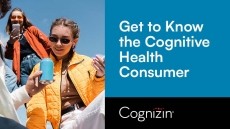“Try telling any marathoner or endurance cyclist that carb drinks and gels don't help them maintain performance over long distances and you'll be laughed out of the room..."
‘Controversial’; EFSA rejects sports gels for endurance

The dossier, submitted by the British Specialist Nutrition Association (BSNA), contained three meta-analyses relating to 195 human intervention studies but no individual clinical trials were presented.
In handing down its verdict EFSA’s Panel on Dietetic Products, Nutrition and Allergies (NDA) noted an article 13.1 general function positive opinion from 2011 that backed carbohydrate-electrolyte beverages to maintain, “endurance performance” under the EU nutrition and health claims regulation (NHCR).
Here the difference was that the solution (such as a gel) was purely carbohydrate-based and also that the comparative product – water or water/electrolyte placebo – was undefined. The NDA said it requested data on “the comparator” but none was forthcoming from the BSNA.
Without a valid point of comparison, the panel proceeded to reject the endurance claim for, “carbohydrate solutions [that] contain 50–80 g/L (or 200-320 kcal/L) of carbohydrates that induce high glycaemic responses (e.g. glucose, glucose polymers, sucrose) and include sports 'gels' (to be consumed with water) containing 20–70 g of carbohydrates/100 g.”
BSNA director general Roger Clarke told us his group and its members associated with the application were assessing the decision to, “determine ‘next steps’ within the timeframe given.”
It has 30 days to appeal the decision.
Dropped the ball?
Mark Gilbert, co-founder, sports nutritionist and chief content officer at UK-based MuscleGenes.com, said there was, “decades of data” backing the role of carbohydrates in endurance activities.
The NDA opinion was therefore, “yet another controversial EFSA decision considering that an average man could hold as little as 150 g of carbohydrate – or less – as glycogen in his muscles, depending upon his diet and exercise activity.”
Gilbert said even someone on a high-carb diet could burn through available glycogen stores in 40 minutes or less, “So I'm not sure how anyone can get around this scenario without suggesting carb repletion.”
“Try telling any marathoner or endurance cyclist that carb drinks and gels don't help them maintain performance over long distances and you'll be laughed out of the room and never invited back!”
“So I can't for the life of me explain how EFSA has dropped the ball yet again when making decisions on sports nutrition/supplements.”
He added: “Do they fear these messages will be delivered to non-exercisers, thus causing excess sugar intake in the general population/children?... or is EFSA only considering typical bouts of activity and not intense exercise or prolonged exercise.”
Lessons to be learnt
Dr Adam Carey, chair of the European Specialist Sports Nutrition Alliance (ESSNA), said the verdict was more about the application than the science backing carbohydrates and endurance.
“We understand EFSA reached the conclusion they did not because there is no science to support the claim, but because the right type of evidence was not presented as required by the claims approval process. This does not change the obvious fact that athletes have increased energy requirements and carbohydrate gels are a great way to deliver on this need around training or competition. This is something that any regular runner will be able to tell you.
"We therefore believe that this opinion will have no negative impact, and the industry must learn the lesson from this process to ensure that the science they submit to support any potential claim in future is robust and well-founded.”




















